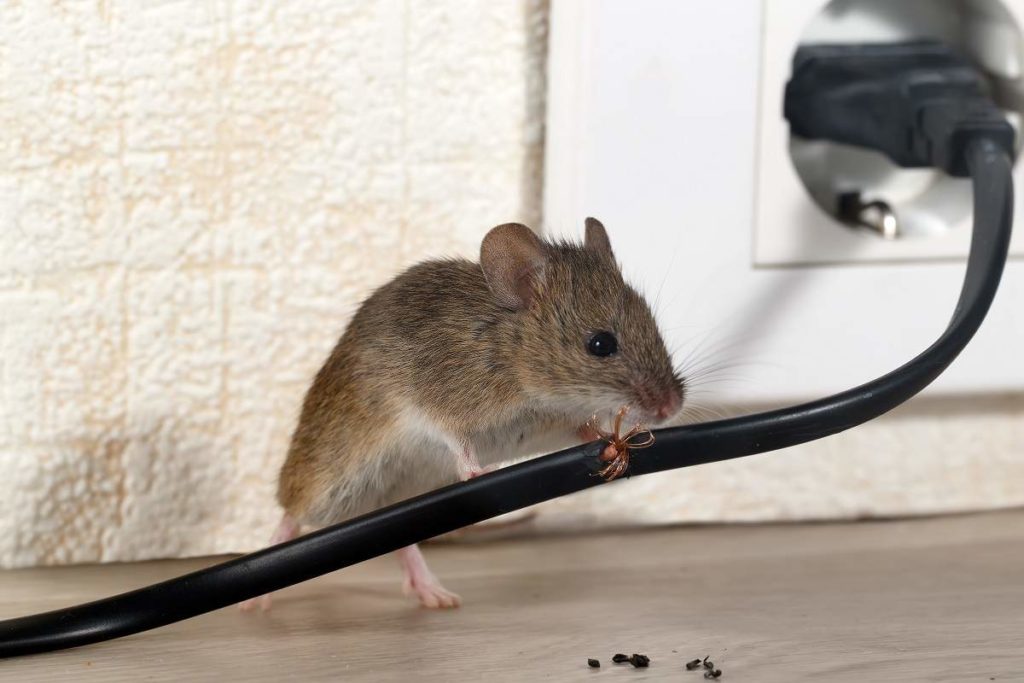How To Prevent Mice Infesting Your Home
As cartoon characters or storybook illustrations, mice are cute. However, living with wild mice is a different story. When mice start to nibble into our homes and businesses, they start to become a pest. As mice can spread diseases and cause a wide range of damage its important to know how to prevent mice infesting your home.

Why Stop Mice?
Mice appear to look harmless, and you could wonder how such a small animal could cause you problems. Because mice mark their territory once in a new building, they urinate everywhere which can spread diseases such as salmonella and listeria.
As they nest near food sources mice droppings can end up in your food creating a risk of food poisoning. Mice have a compulsive need to nibble to keep their teeth at a constant length. The gnawing on cables, pipes and woodwork can cause major damage to your property.
Which Mice to Watch Out For?
To understand how to prevent mice from infesting your home, you first to learn more about them. There are two types of mouse in the UK: House Mouse and Field Mouse.
As the name suggests, the house mouse is commonly found living close to humans. The field mouse is more suited to living outdoors but may look for shelter indoors when the weather is cold.
The house mouse has small feet with big eyes, and their body length ranges between 60-90mm. The field mouse has bigger eyes and ears than the house mouse. The field mouse has a long tail which makes them agile climbers.
Where do Mice Like to Nest?
The house mouse is most likely to build a nest in roof spaces, under floors, in wall cavities, sheds and in storage boxes. They are looking for a warm space near a food source where they can breed undisturbed.
The field mouse will excavate burrows to build nests of dry grass but will also den among rocks and crevices.
Have You Already Got a Mice Infestation?
If you suspect you may already have a mice problem some of the signs to look out for include;
- Droppings – black and about the size of a grain of rice
- Strong ammonia smell – from the mouse urine
- Smear marks – dark grey marks on walls and cupboards from the oil on mouse fur
- Damage to food packaging – torn open flour or biscuits could be a sign of nibbling mice
- Gnaw marks – on furniture, carpets or cables could be mouse damage
How to Prevent Mice Infestations?
As mice breed quickly, a few mice can soon lead to an infestation. A female mouse can produce anywhere between 3 and 10 litters a year. In each litter, there would be 6 – 8 young. Mice can fit through very small gaps and only need a hole of 5mm to gain entry.
The first area to prevent infestation is to ensure your property is well sealed. Look at gaps around windows and pipes to make sure these are filled in. Focus on low-level gaps but also consider any high up vents as mice can climb well.
Other prevention steps are to remove any potential nesting sites and keep gardens clean and tidy. Cover any household waste and make sure there is no easy access to food debris. Check for gaps under exterior doors. If these are larger than 4mm, install a brush strip.
Not Sure What To Do?
If you are concerned about being at risk of a mice infestation or think you may already have one Confirm A Kill can help. Our team of experts have many years of experience of mouse control and can create a plan to tackle your problem effectively. Contact us today for a free quote.
